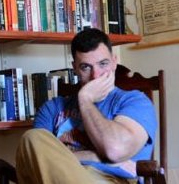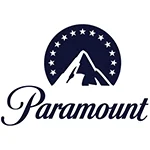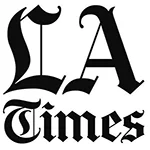Ben Kesling, reporter based in Chicago for the Wall Street Journal, reported Oct. 11 that the FBI has given the lead role in the 1982 Tylenol murders investigation to the Police Dept. in Arlington Heights, a suburb of Chicago.
 Kesling Photo:LinkedIn |
However, Kesling’s story incorrectly says that Tylenol-maker Johnson & Johnson in 1982 introduced “tamper-proof packaging” which has become “ubiquitous.”
J&J itself never promised that its packaging would be “tamper-proof” after the murders. It only used the phrase, “tamper-resistant.”
If the packaging were tamper-proof, 23-year-old Diane Elsroth of Peekskill, N.Y., would not have died on Feb. 17, 1986 after taking a Tylenol capsule laced with cyanide.
The FBI at first said the Tylenol packaging had not been invaded but then reversed itself and said it had been.
If it had not been tampered with, that would have placed responsibility for the poisoning with J&J.
J&J Is “Proud” of its Record
J&J told Kesling it is “proud of our history in that matter…as we continue to pioneer safety enhancements in an effort to protect consumers,” J&J declined further comment. That has been the company’s stance on this subject for decades.
Descriptions of what J&J did in 1982 and 1986 have been in the news lately following the death Oct. 17 of Lawrence Foster, former VP-PR of J&J.
Michelle Rosen, who was eight when she watched her mother Lynn Reiner fall dead off her chair in the kitchen after taking a poisoned Tylenol, is conducting a campaign to have documents connected with the murders unsealed. Reiner had just given birth to her fourth child and had obtained the poisoned pills from the hospital dispensary.
“I just want to have the documents unsealed,” Rosen told Kesling. “I watched her (Lynn) hit the kitchen floor. I watched what she went through.”
Mike Hernandez, commander of criminal investigations at the Arlington Heights Police Dept., has been sent via e-mail the question of why documents in the Tylenol murders remain sealed. A phone call has also been made to him.
Barking up Wrong Tree
The search for the murder or murderers should continue but another investigation should explore how J&J could make lofty statements about public safety while at the same time rushing into the marketplace six weeks after the 1982 murders with the same type easily-spiked capsules that killed seven people and then sell them in containers that were not 100% safe.
J&J was aware of further possible problems with the capsules.
A New York Times story Feb. 20, 1986 headlined, “Johnson Bought, Then Rejected /Locking Capsules.” The story said J&J feared such capsules might be opened without destroying them.
Kesling’s report does not mention the death of Elsroth but he has been contacted by phone and sent the Oct. 21 odwyerpr.com commentary on the death of Foster that gives details of the two Tylenol poisoning incidents.
Kesling Is U.S. Marine Veteran
Kesling joined WSJ in September 2012 after serving as an intern for three months with Dow Jones Newswires and WSJ. A graduate of Wabash College with a Master of Divinity degree from the Harvard Divinity School, he attended Medill School of Journalism at Northwestern University.
He served in Afghanistan in 2008, led training for Afghan soldiers transitioning to M16 rifles and AK-47 rifles. In 2007, he commanded weapons platoon of 42 Marines and conducted more than 100 mounted and dismounted combat patrols. He also led humanitarian and counterinsurgency operations and commanded platoon during “surge” operations, partnering with the Iraqi National Police and army.
From 2005 he was with the U.S. Marine Corps on active duty, serving at Camp Lejeune, Abu Dhabi, and 29 Palms, Calif.
Biz Schools Laud J&J
Kesling is correct in reporting that “business schools across the nation count J&J’s response as an exemplar of crisis control.”
The textbook Effective Public Relations says J&J began “immediately pulling the product off retail shelves…” (although no product was recalled until five days later on Tuesday, Oct. 5, 1982).
PR Strategies & Tactics said J&J “immediately halted Tylenol production, stopped distribution, and recalled supplies from retailers.”
The Practice of PR noted the recall did not take place until the following Tuesday.
Harvard Business School in 1989 praised J&J for its “immediate and spontaneous response to the press” in handling the 1982 murders. There was no press conference nor other opportunity for reporters to question J&J executives in public. Press calls were handled privately and individually.
Burke Sought Advice of Students
CEO James Burke, who learned of the murders on Thursday, Sept. 30, 1982, spent the weekend with his son and his friends at Middlebury College, Vt., which was conducting parents weekend.
Burke took his son James and eight of his friends to dinner and asked their advice on what he should do in the wake of the murders.
J&J announced that with the exception of two lots of Tylenols that were distributed in the Chicago area, it was holding off on pulling all Tylenol product from shelves. Both J&J and the FDA immediately warned the public not to consume any Tylenol products.


 Trump Media & Technology Group today reported a $58.2M net loss on $4.1M in 2023 revenues, a disclosure that drove its stock price down 22.6 percent to $47.96.
Trump Media & Technology Group today reported a $58.2M net loss on $4.1M in 2023 revenues, a disclosure that drove its stock price down 22.6 percent to $47.96. Barry Pollack, an attorney at Wall Street’s Harris St. Laurent & Wechsler, has registered Julian Assange as a client with the Justice Dept. “out of an abundance of caution.”
Barry Pollack, an attorney at Wall Street’s Harris St. Laurent & Wechsler, has registered Julian Assange as a client with the Justice Dept. “out of an abundance of caution.” Paramount Global to slash 800 jobs in what chief executive Bob Bakish calls part of an effort to “return the company to earnings growth"... Rolling Stone editor-in-chief Noah Shachtman is exiting at the end of the month due to disagreements with chief executive Gus Wenner over the direction the magazine is taking... The New York Times broke the $1 billion barrier in annual revenue from digital subscriptions in 2023... Press Forward is investing more than $500 million to strengthen local newsrooms.
Paramount Global to slash 800 jobs in what chief executive Bob Bakish calls part of an effort to “return the company to earnings growth"... Rolling Stone editor-in-chief Noah Shachtman is exiting at the end of the month due to disagreements with chief executive Gus Wenner over the direction the magazine is taking... The New York Times broke the $1 billion barrier in annual revenue from digital subscriptions in 2023... Press Forward is investing more than $500 million to strengthen local newsrooms. The majority of news articles are read within the first three days of publication, according to a recent report.
The majority of news articles are read within the first three days of publication, according to a recent report. The Los Angeles Times gives pink slips to 115 people or 20 percent of its newsroom staff... TIME is also laying off about 30 employees, which is approximately 15 percent of its editorial staff... The Baltimore Banner, which was launched by Stewart Bainum in 2022 after he failed to buy the Baltimore Sun, added 500 subscribers per day in the three days following Sinclair Broadcast Group's deal to purchase the Sun.
The Los Angeles Times gives pink slips to 115 people or 20 percent of its newsroom staff... TIME is also laying off about 30 employees, which is approximately 15 percent of its editorial staff... The Baltimore Banner, which was launched by Stewart Bainum in 2022 after he failed to buy the Baltimore Sun, added 500 subscribers per day in the three days following Sinclair Broadcast Group's deal to purchase the Sun.


 Have a comment? Send it to
Have a comment? Send it to 
No comments have been submitted for this story yet.